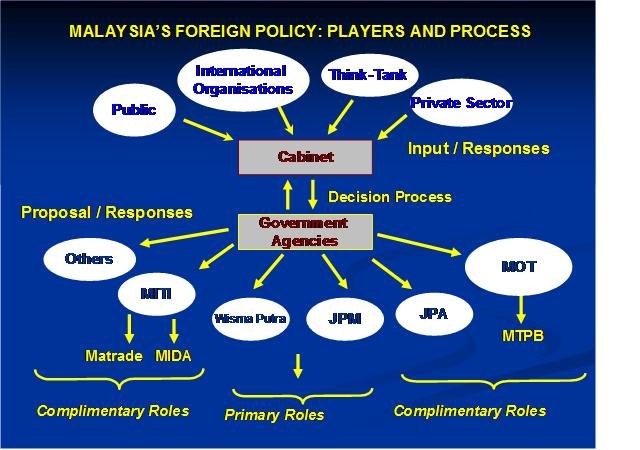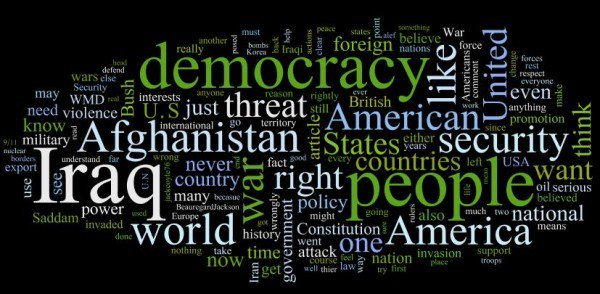Importance of Islam in Foreign Policies - Last Part
The importance of Islam in Malaysian and Indonesian foreign policies
This research will be covered only Malaysian and Indonesian foreign policies.
After Second Part
In 1999, during the general election, it was reflected that Islam has become an expanding legitimate force in the politics of democratic transition. The formal political parties declared itself as an Islamic political party on the contrary the informal parties declared itself as an open party so alliance created a central axis that had been succeeded by Gus Dur. The Islamic parties increased their share in DPR seats from 27.9% to 40.5%. However, post-Suharto era did not seem a linear rise of the influence of Islam rather it faced great threat from successive governments to take active role like standing against US allies against Iraq (Milne & Funston, 1981). Habibie administration reflected its desperate need of financial support from IMF and World Bank so it just explicitly regrets on that but the Gus Dur foreign policy is important as opening of trade relation with Israel was controversial and criticized by all. While Megawati administration positioned itself again and its visit to US after one week of September 11, considered by many Islamic groups as surrender to the US vice president. But the Megawati administration was not agreed to cut diplomatic ties as there is fundamental political and economic interest lie in the relationship (Mujani & Liddle, 2004). The government took the terrorism factor more seriously and finally took strong action for removal of terrorism. At this stage of terrorism, the laws regarding anti-terrorism do not affect the cooperation between Indonesia and western countries. During the period, Islamic factor was influential in the SBY administration as support from political parties is essential as well as western financial assistance is also important to achieve greater economic development.
Indonesia thought Islam as a threat to their regime so it limited participation in the Muslim world on the other hand; Malaysia made Islam prominent and became very influential in the domestic policies. Because of such differences, Islam is lightly focused in bilateral relationship. Confrontation is not always seems to be Islamic and the incident of September 11 brought united front between these two countries. Before this, there was no issue regarding high priority terrorism on international agendas of both the country. But while Abdullah and SBY became leaders, there was close cooperation regarding the affairs of Muslim world like d8, transnational terrorism etc (Yegar, 1988). Because terrorism would threaten the stability of the society by creating crisis in religious balance and would negatively affect potential foreign investors and tourists especially from the western countries. Cooperation is required from both the countries as terrorists share common resources like intelligence system, conducts join operations and also get funds from Malaysia. Such cooperation is significant for counterterrorism activities for example Malacca, Malaysia and Indonesia agreed for participation in a new data sharing system that would serve all the information related with shipping to limit terrorism and piracy that disturbs the lanes in straits. Such cooperation greatly reduced the number of terrorist attacks and killing of more wanted terrorist in both Malaysia and Indonesia (Mujani & Liddle, 2009).
Conclusion
At the concluding part of the report, it can be said that Islam played different role in these two countries due to their difference in foreign policies. In the Indonesian perspective, the political parties were secular having liberal Muslims and nationals while chose Pancasila as the guiding ideology. After Suharto’s regime, Islam played great role in domestic policies. It generally reflected that this development must be ensured by balancing Islamic credentials with its assistance required from western countries. But the scenario of Malaysia is totally in contrast as Islam was more influential there since their independence. The reason behind this are Muslim citizens have monopolized their power; Islam itself is constitutionally imposed in the region and ensured the legal rights of people in the general agendas. Malaysia is such a country that continuously tried to engage itself in solidarity on issues affecting the Muslim world. The difference between the impacts of Islam in both countries is due to the reason of Islam’s impact on foreign policies as a shared faith. Both Suharto and Mahathir tried to actively involve Islam but they also work vigorously for leadership of the countries. During this, terrorist groups planned in response to the activities and affected bilateral relationship by bombing incidents. It can be said that in bilateral relationship, both countries need to fight against terrorism as an Islamic content to help the country in a broad matter that is affecting the Muslim world.
END
Would you like to add something else?
Then comments and also Follow me @sifatullah
Let's stay together? Here can Read Part 1 and 2 of this Article
Importance of Islam in Foreign Policies - Part I
https://steemit.com/politics/@sifatullah/importance-of-islam-in-foreign-policies-part-iImportance of Islam in Foreign Policies - Part II
https://steemit.com/politics/@sifatullah/importance-of-islam-in-foreign-policies-part-ii
.jpg)


.jpg)
Nice read. I leave an upvote for this article thumbsup
Thank you very much to read my article. Happy Steeming